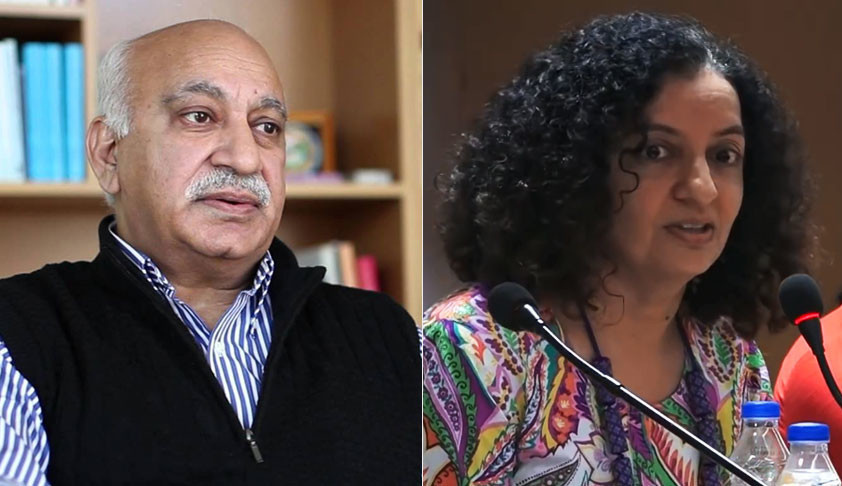New Delhi: Ending all uncertainty over the trial in the criminal defamation complaint filed by former Union Minister MJ Akbar against journalist Priya Ramani, a Delhi court Thursday sent back the case to the judge who was hearing it for two years.
An Additional Chief Metropolitan Magistrate (ACMM) trying the case had earlier this month sent the matter to Principal District and Sessions Judge seeking transfer of the matter to another court on the ground that his court was designated to hear cases filed against lawmakers. Principal District and Sessions Judge Sujata Kohli, however, sent the matter back to the ACMM.
While reserving the order, the Sessions Judge had noted that in case it was found that the magisterial court, which was hearing the matter for two years, did not have the jurisdiction, the entire trial and not just the final arguments, gets ‘vitiated’.
The order remanding the case back to the same judge makes it clear that the proceedings will progress in a routine manner by the ACMM who has been asked to take up the matter November 2.
ACMM Vishal Pahuja, who had started hearing the final arguments in the case February 7 this year, had sent the matter to district and sessions judge, saying the case in hand was not filed against MP or MLA and needs to be transferred to the ‘Competent Court of Jurisdiction’.
Pahuja had said his court (court of ACMM) was designated to try the cases filed against the lawmakers by a circular passed February 23, 2018 and since this case was ‘not filed against MP/MLA’, he was marking the matter to Principal District and Sessions Judge to consider re-assigning the case to another Metropolitan Magistrate.
Akbar had filed the criminal defamation complaint against Ramani in March 2018.
In the wake of #MeToo movement, Ramani in 2018 accused Akbar of sexual misconduct around 20 years ago when he was a journalist. Akbar resigned as Union Minister, October 17, 2018.
Ramani had earlier told the court that she was ‘targetted selectively’ through a criminal defamation complaint by Akbar, ‘to halt the avalanche of allegations of sexual misconduct that came out against him’ in the wake of #MeToo movement in 2008.
Akbar had earlier told the court that Ramani had defamed him by calling him with adjectives such as ‘media’s biggest predator’ that harmed his reputation. He has denied all the allegations of sexual harassment against the women who came forward during #MeToo campaign against him.
Ramani had said that her ‘disclosure” of alleged sexual harassment by Akbar has come at ‘a great personal cost’ and she had ‘nothing to gain’ from it. She had said her move would empower women to speak up and make them understand their rights at workplace.
Several women came up with accounts of the alleged sexual harassment by Akbar while they were working as journalists under him. He has termed the allegations ‘false, fabricated and deeply distressing’ and said he was taking appropriate legal action against them.
